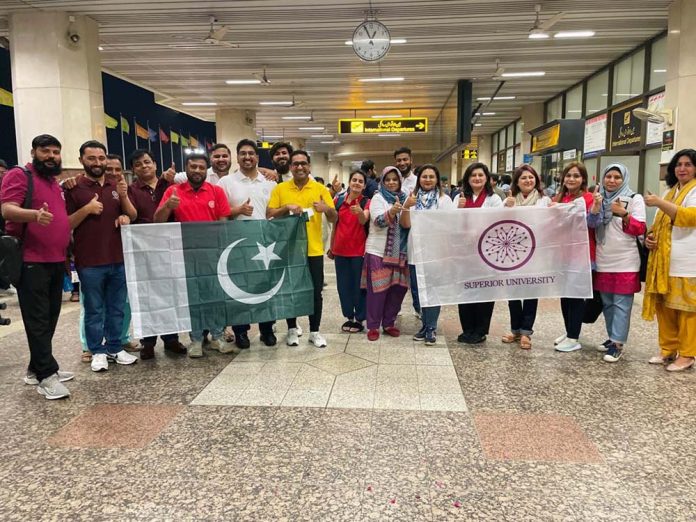In recent years, there has been a growing awareness about the importance of addressing learning disabilities. In Pakistan, the challenges of learning disabilities are compounded by issues related to equity and access to quality education. The Exchange for Pakistani Secondary Educators and Administrators (EPSEA) program is a timely and crucial initiative taken by the Oakland University, USA, in partnership with the Superior Group, Pakistan, and fully sponsored by the U.S. Department of State.
The program has been designed for 2 training cohorts to be held at Oakland University during May to June for the years 2022, 2023. Phase one of the program was commenced last year wherein 20 members group comprising secondary teachers, administrators, and university professors from Pakistan embarked on a four-weeks journey to Oakland University in Michigan, USA.
The visit during phase one enabled the Superior faculty and administrators to improve the learning process in their respective institutions. This global exposure further strengthened Superior’s commitment to excellence in learning by strengthening local institutions, facilitating the creation of support circles, and developing professional learning networks. The participants of the program got trained to enable the teachers to co-opt an inclusive perspectivee through lending extended support to the students in as well beyond the classrooms.
A Comprehensive Approach: Phase Two
In the second phase of the program, from May 5th to June 3rd, 2023, the same group of 20 secondary teachers, administrators, and university professors from the Superior Group have reached Oakland University in Michigan, USA, with an additional plan of educational trip to Chicago.
The second phase of EPSEA is designed to provide participants with a comprehensive understanding of learning disabilities, their impact on families, and strategies for student success beyond the classroom. During their time at Oakland University, participants will engage in various seminars, activities, and cultural visits, including:
- In-depth seminars on the formal assessment of learning disabilities, action research, and teacher leadership.
- Visits to local facilities and labs specializing in learning disability testing.
- Interaction with community and family support groups.
- Weekly classroom visits to reconnect with mentor teachers.
- Cultural visits to Michigan attractions, including the Michigan Science Center, Eastern Market, and Belle Isle.
- A week-long educational tour to Chicago, focusing on formal diagnostic evaluations and family support systems.
Outcomes and Future Impact
Upon completion of Phase Two, participants are expected to:
- Complete the fifth and sixth steps of action research: analysing data/reporting results and taking informed action.
- Develop an online training resource or MOOC for dissemination throughout the Pakistani school system.
- Create a resource packet/kit for teachers, detailing key findings from their action research.
- Invite broader participation in their professional learning network, sustaining it within Pakistan.
- Understand the impact of learning disabilities on families and explore strategies for student success outside the classroom.
- Build a growing list of resources for exploring specific areas of interest related to learning disabilities.
Conclusion
The EPSEA program promises to be an invaluable experience for the participating Superior educators, equipping them with the knowledge, skills, and resources to make a lasting impact on secondary education in Pakistan. By addressing learning disabilities and promoting equity, access, and inclusive practices, EPSEA aims to create a more supportive and nurturing learning environment for all students, ensuring their success in and beyond the classroom.


